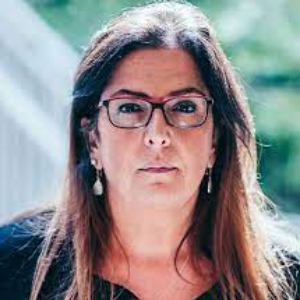Title : Overcoming the barriers to effective targeted drug delivery through stem cell-derived nano-ghosts
Abstract:
Targeted drug and gene delivery technologies, mostly for oncological applications, have been extensively investigated for more than three decades. With only seven passively-targeted systems and just two actively-targeted antibody-drug conjugates in oncological use, it seems, however, that the clinical translation of targeted drug delivery technologies suffers from relatively slow progression compared to other advanced cancer therapies. This limited translatability, despite overwhelming preclinical data, was largely attributed to wide variations in the tumor presentation of distinctive targetable characteristics. Such variations, seen both between patients and among the same patients during disease progression, limit the selectivity of targeted delivery technologies while giving rise to off-target effects and restricting their use to small population groups. Overall, these reduce the cost-effectiveness of targeted-delivery technologies and lower their industry appeal. Allogeneic mesenchymal stem cells (MSCs) engineered ex vivo to secrete bioactive compounds were suggested as a natural alternative to synthetic delivery systems. This alternative builds on MSCs allogeneic tolerability and their multiple evolutionarily-optimized inflammation-targeting mechanisms, which should allow them to home in on and deliver their payloads to different and evolving cancers. Despite ample advancements, this approach is still limited by MSC susceptibility to host-induced changes, permitting them to exert a short-term effect only and restricting repeated administrations.
In recent years, our lab has been developing a proprietary drug and gene delivery system termed Nano-Ghosts (NGs) that are based on nanometric vesicles manufactured through a scalable process from the cytoplasmic membranes of allogeneic MSCs following the removal of the cells’ cytoplasm and organelles. While excluding MSCs’ cytoplasmatic machinery, the NGs’ retention of MSC membranes equips them with a multitude of surface proteins that are regularly involved in MSC homing and immune evasion. This makes the inanimate NGs less susceptible to host-induced changes and safer than living cells while arming them with a targeting capacity similar to the MSCs. To date, we have demonstrated the NGs’ ability to selectively target models for metastatic lung tumors, prostate tumors, and orthotopic pancreas and brain tumors as well as models for neurological and degenerative diseases. NGs were shown to actively traffic across the BBB and infiltrate the bulk of even highly desmoplastic tumors. Inside the tumor niche, the NGs were found to interact with cancer cells and stem cells and endothelial and immune cells, while avoiding such interactions in other parts of the body. Different methods were developed to load the NGs with a variety of bioactive compounds including small molecule drugs, proteins, and nucleic acids, which have dramatically improved the drugs’ therapeutic outcomes in all oncological models tested. Safety studies revealed no immunotoxicity or organ toxicity in response to more than ten times the NGs’ effective therapeutic dose as well as no primary or secondary immune response. Collectively, our results demonstrate the translational potential of harnessing the homing capabilities of MSC in an imamate NG platform that requires no materials from the patient himself and that can be used as an off-shelf-product delivering diverse payloads for treating a broad range of indications.
Audience take away:
• The major limitations to the clinical translation of targeted drug and gene delivery technologies.
• The concept of drug and gene delivery by Nano-Ghosts.
• How Nano-Ghosts can potentially overcome some of the drawbacks of current delivery technologies.
• Exposed to a unique platform they can use to selectively deliver their own APIs to different pathologies.



